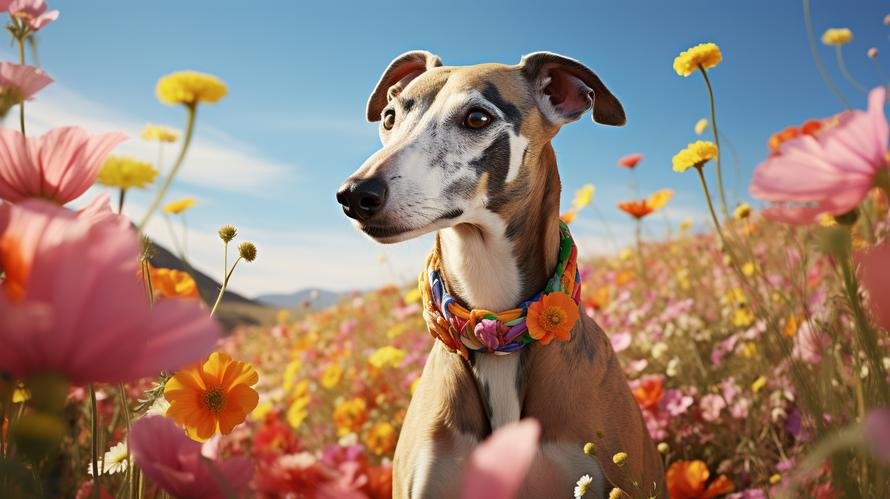When it comes to the diet of a greyhound, the debate between grain-inclusive and grain-free options can stir up quite the conversation among owners and animal nutritionists alike. These swift canines, known for their racing prowess and sleek physiques, have unique dietary requirements that may make one ponder: is grain-free the way to be?
Firstly, let’s dive into the grain-free diet trend. It became especially popular in the pet food industry after concerns over potential allergens in conventional dog foods. Manufacturers began excluding traditional grains like wheat, corn, and soy, replacing them with alternative sources such as potatoes, peas, and lentils. The idea was to mimic a more ‘natural’ diet, akin to what wild canine ancestors might eat. Owners everywhere began to wonder if this was the secret to a healthier, happier pup.
Now, it’s essential to understand a greyhound’s nutritional profile. These dogs are athletes, and their nutrition is paramount to their performance and overall well-being. A balanced diet for a greyhound should be rich in high-quality proteins to support muscle repair and energy requirements. Fats serve as a concentrated energy source and aid in the absorption of certain vitamins. Carbohydrates, while less critical than protein and fat, still play a role by providing energy and fiber for digestive health.
At the heart of the grain-free discussion lies the question of carbohydrates. Do greyhounds benefit from grain-free diets where carbs come from non-traditional sources? Let’s unravel this by looking at what research suggests.
Regarding carbohydrates, there is no evidence to suggest that greyhounds, or dogs in general, have adverse reactions to grains as a whole. In fact, grains are a source of valuable nutrients like essential fatty acids, vitamins, and minerals. They are also rich in fiber, which can promote gut health. Unless a greyhound has a diagnosed grain allergy or intolerance, which is relatively rare, grains can be a beneficial component of their diet.
However, it’s not just about whether grains are present, but the quality of the grains used. Whole grains are much more nutritious than their refined counterparts and are less likely to cause a spike in blood sugar levels.
One study that has turned tables is the FDA’s investigation into the link between grain-free diets and dilated cardiomyopathy (DCM) in dogs. DCM is a disease that affects the heart muscle and results in an enlarged heart. While the investigation has not concluded a direct cause, it noted that most reported cases of DCM occurred in dogs eating grain-free diets, particularly those with legumes like peas and lentils making up a large portion of the diet. This correlation does not equate to causation but has certainly raised eyebrows and led to some scrutiny over grain-free diets.
Then there’s the performance angle. Greyhounds, as mentioned before, are athletes. While no ‘one-size-fits-all’ diet exists, they generally require high-protein and moderate-fat diets, with carbohydrates acting as an additional energy source. Some studies suggest that around 50% of an athletic dog’s energy can come from fats, with an ample proportion of proteins and a small to moderate amount of carbohydrates rounding out their nutrition. This balance ensures they have enough energy for sprinting while maintaining lean muscle mass.
Also, there’s the digestibility factor. Grains can be more difficult to digest for some dogs, potentially leading to gastrointestinal upset. If your greyhound seems to have a sensitive stomach or experiences digestive issues when eating grains, exploring a grain-free option may be worthwhile. However, it’s crucial to replace those grains with equally nutritious alternatives and not simply fill the diet with excess meat proteins and fats.
What about the ancestral diet argument? Some advocates claim that because the ancestors of modern dogs did not consume grains, today’s dogs should steer clear as well. However, over thousands of years of domestication, dogs have evolved to digest carbohydrates, including grains, much more effectively than their wild counterparts. This adaptation has been supported by scientific research demonstrating the presence of amylase, an enzyme that breaks down starches, in dogs’ saliva.
In conclusion, whether or not a greyhound should eat a grain-free diet depends on the individual dog. There is no clear-cut answer, as diet should be tailored to the dog’s specific health needs, activity level, and tolerances. For most greyhounds without grain-related health issues, a diet with wholesome grains can be a healthy choice. The key is to provide high-quality, well-balanced meals that fuel their energetic lifestyle while ensuring optimal health. It’s always advised to consult with a veterinarian or a veterinary nutritionist when considering a diet change, especially one as significant as removing grains from your dog’s diet. They can provide guidance based on the most up-to-date research and the health status of your specific greyhound.
For those greyhound owners pondering the grain-free question, remember that the best diet for your hound is one that meets your dog’s unique needs, is nutritionally balanced, and maintains their health and vitality for the sprinting tracks and beyond. Whether you opt to go grain-free or not, make an informed decision based on science, not just trends, and keep your treasured greyhounds thriving for years to come.



